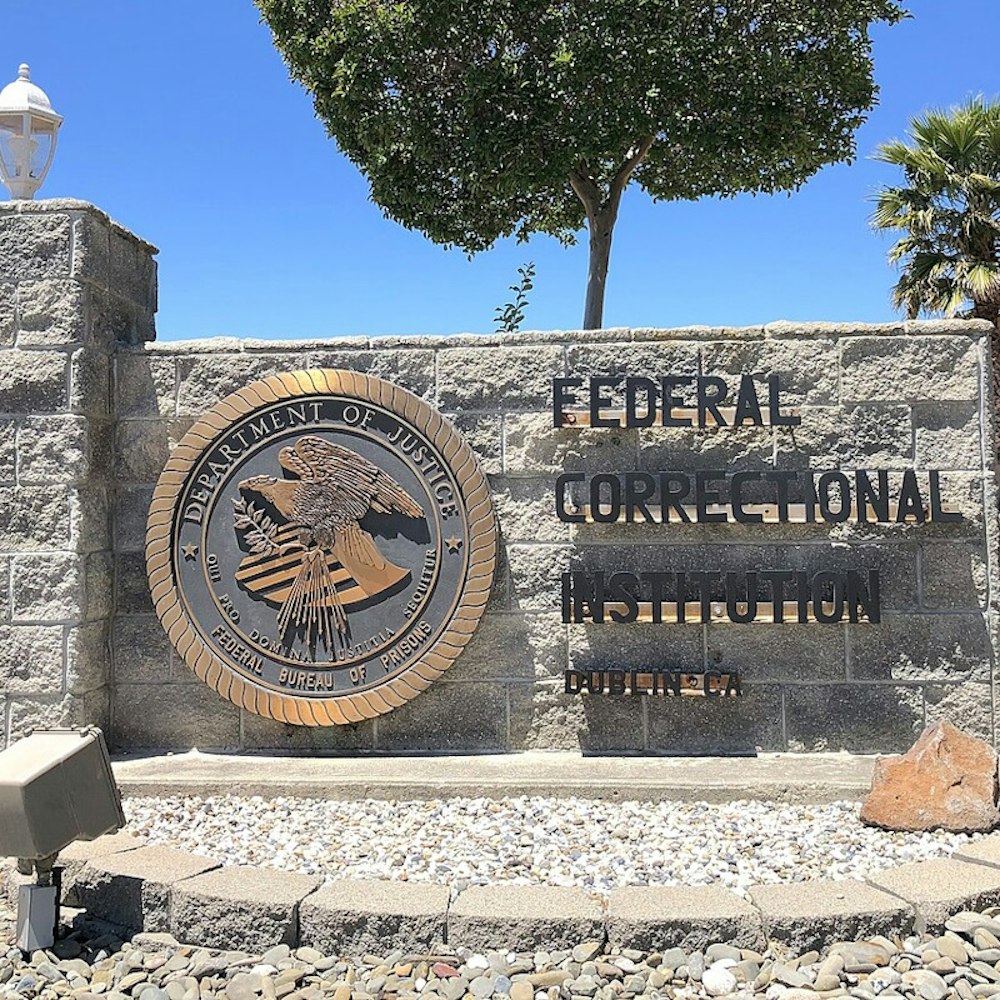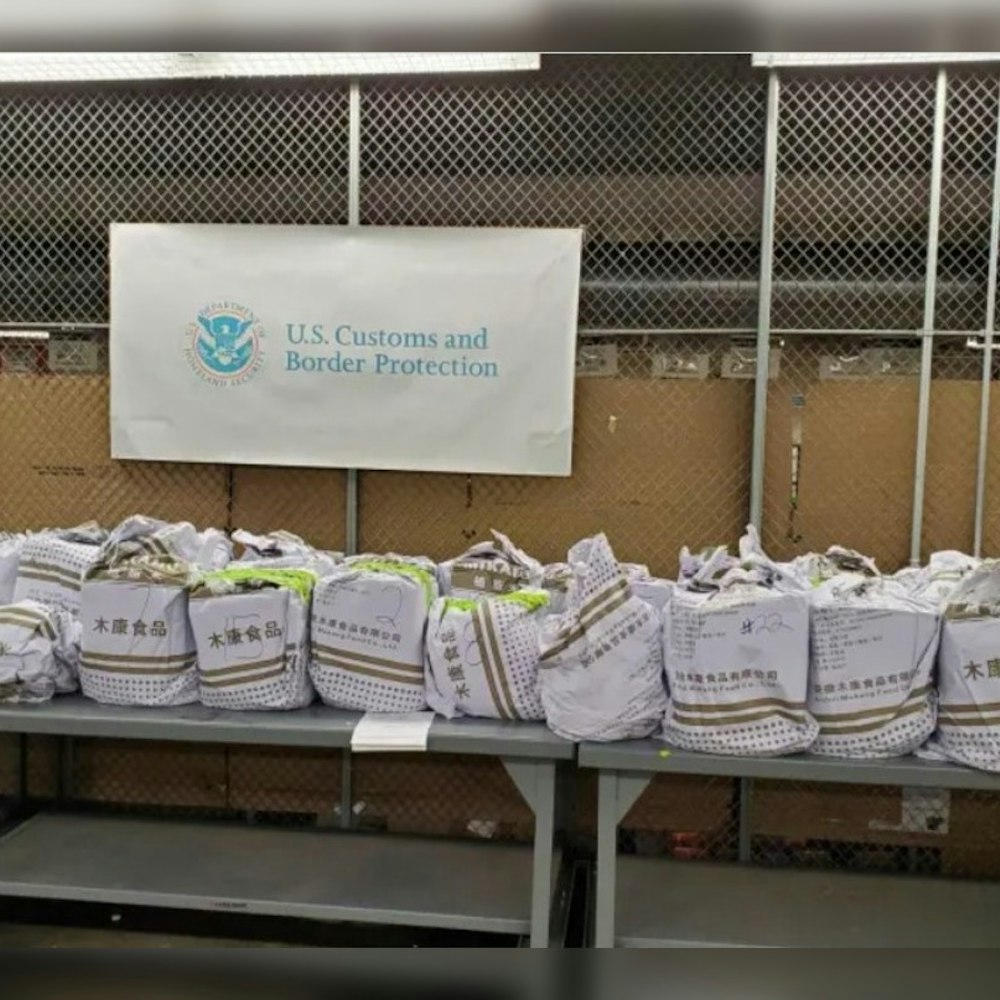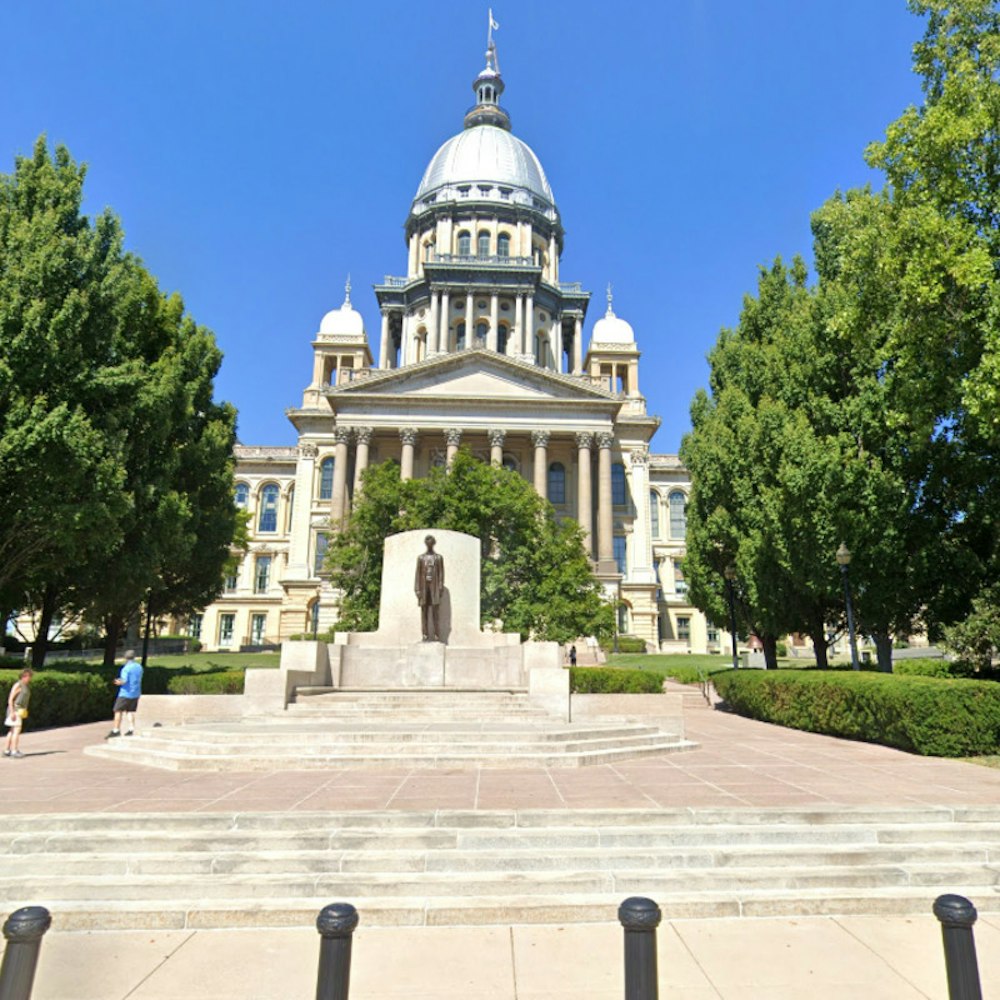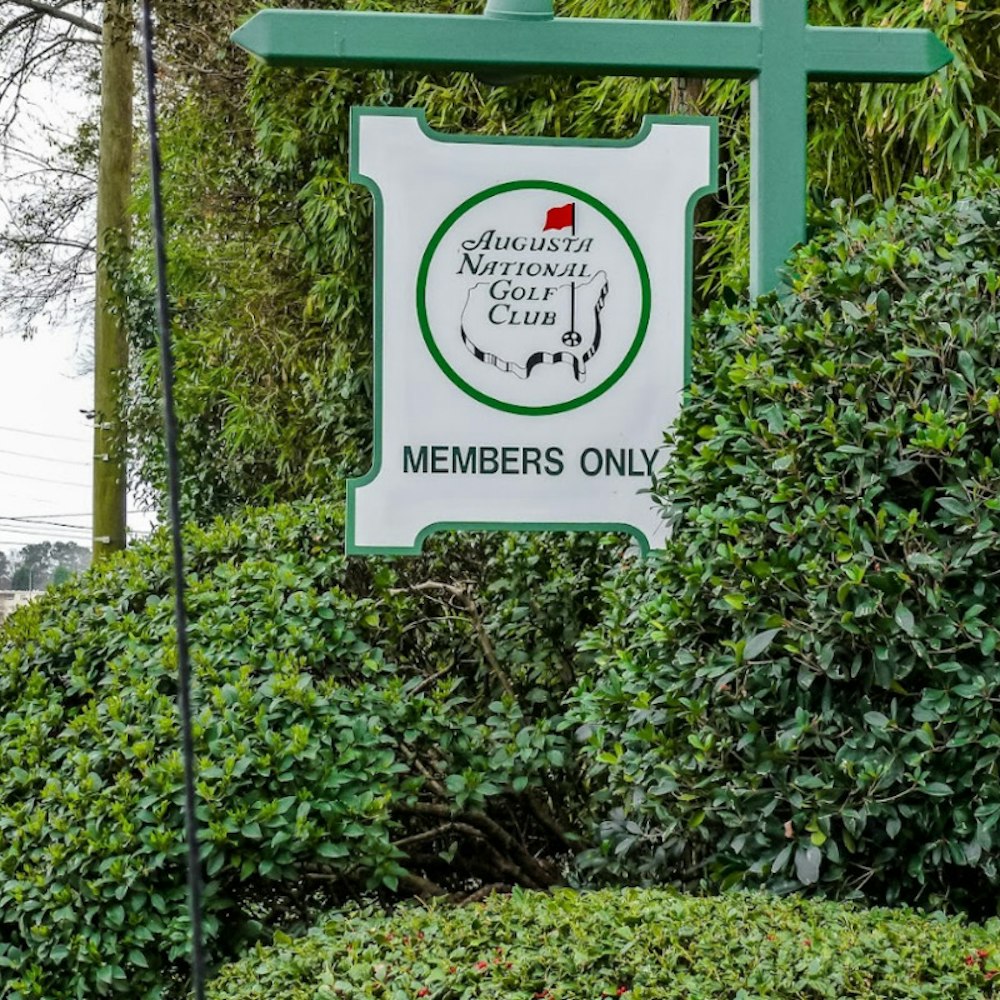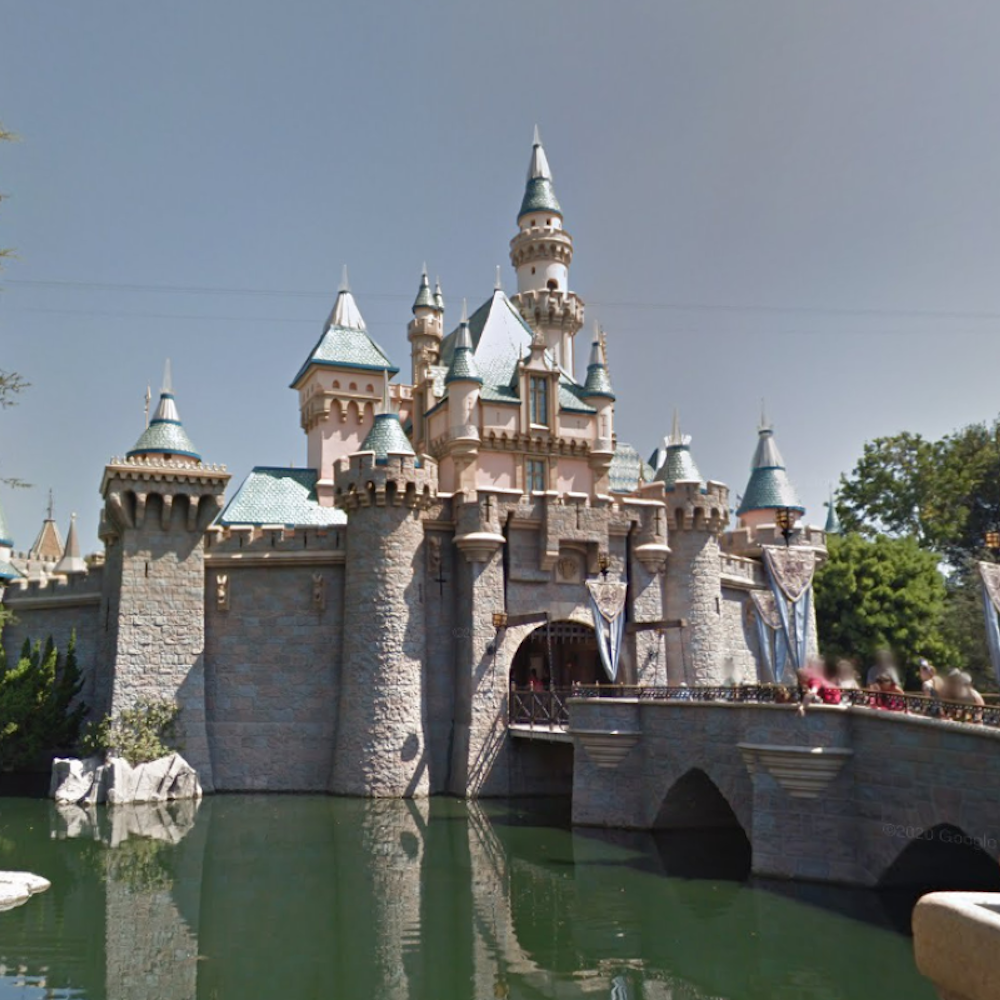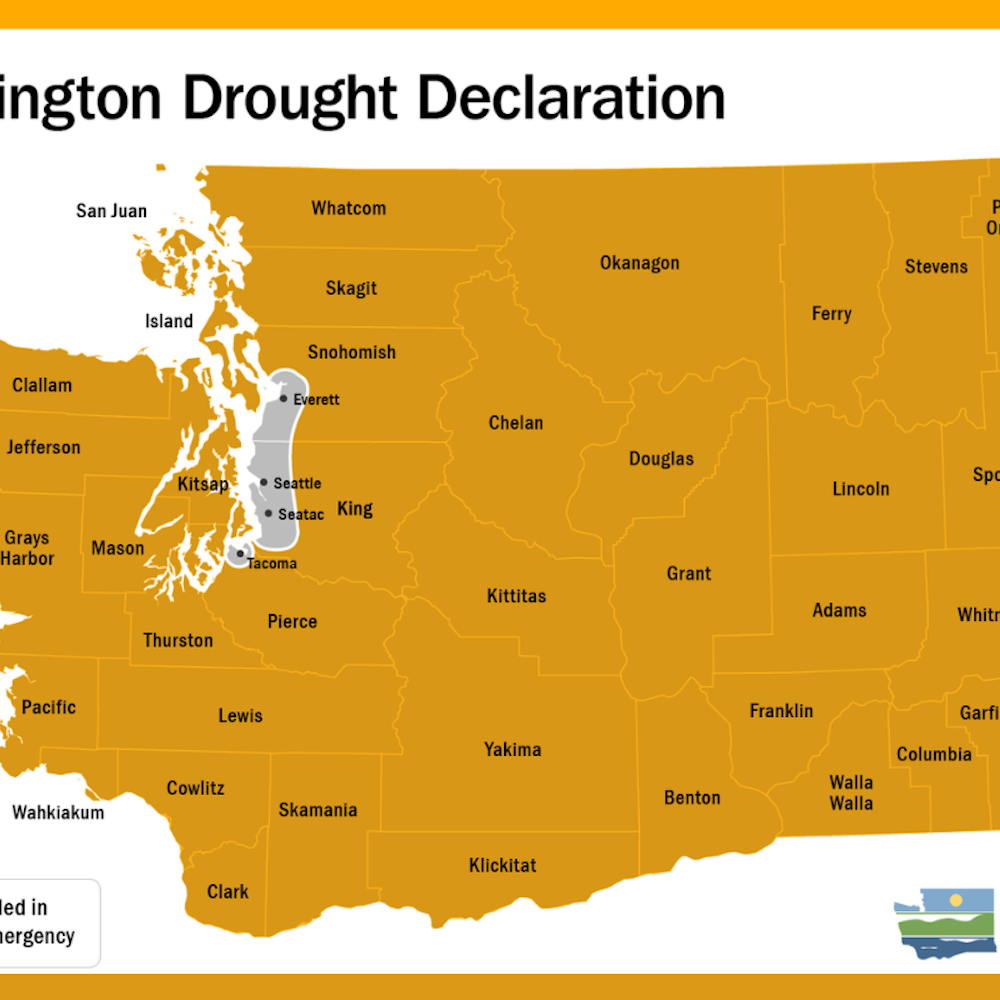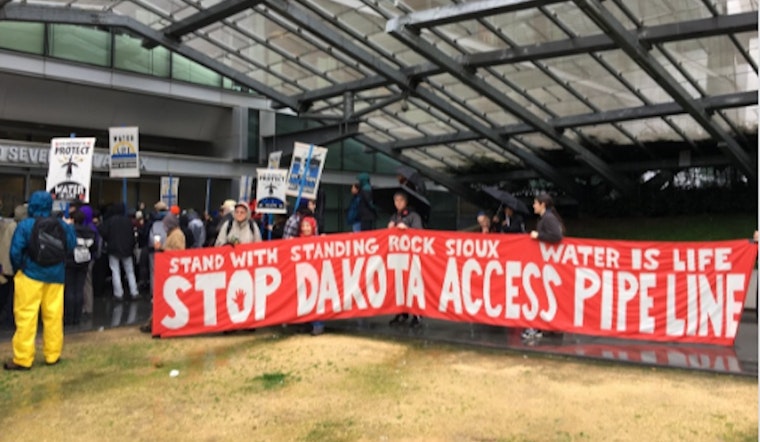
Today's Board of Supervisors meeting will have some special guests: protesters from the San Francisco Defund DAPL Coalition, who are calling for the city to divest its money from financial institutions that are bankrolling the controversial Dakota Access Pipeline (DAPL).
According to coalition spokesperson Jackie Fielder, today's action is focused on getting the Supervisors and the public to see the urgency of the situation. Their goal: encouraging at least one Supervisor to stand with the group by sponsoring a city ordinance to divest from entities that finance Energy Transfer Partners, which is constructing the pipeline.
The nearly 1,200-mile DAPL received its final easement from the U.S. Army Corps of Engineers on February 8th, to cross under the Missouri River just north of the Standing Rock Sioux Reservation. Concerns about the pipeline’s effects on the reservation’s water supply have led to major protests in North Dakota and nationwide.
At least two U.S. cities—Seattle, Wash., and Davis, Calif.—have divested their money from Wells Fargo, at least in part due to its financing of the pipeline. Other cities, including Boulder, Minneapolis, Philadelphia and Portland, Ore., are reportedly considering similar measures.
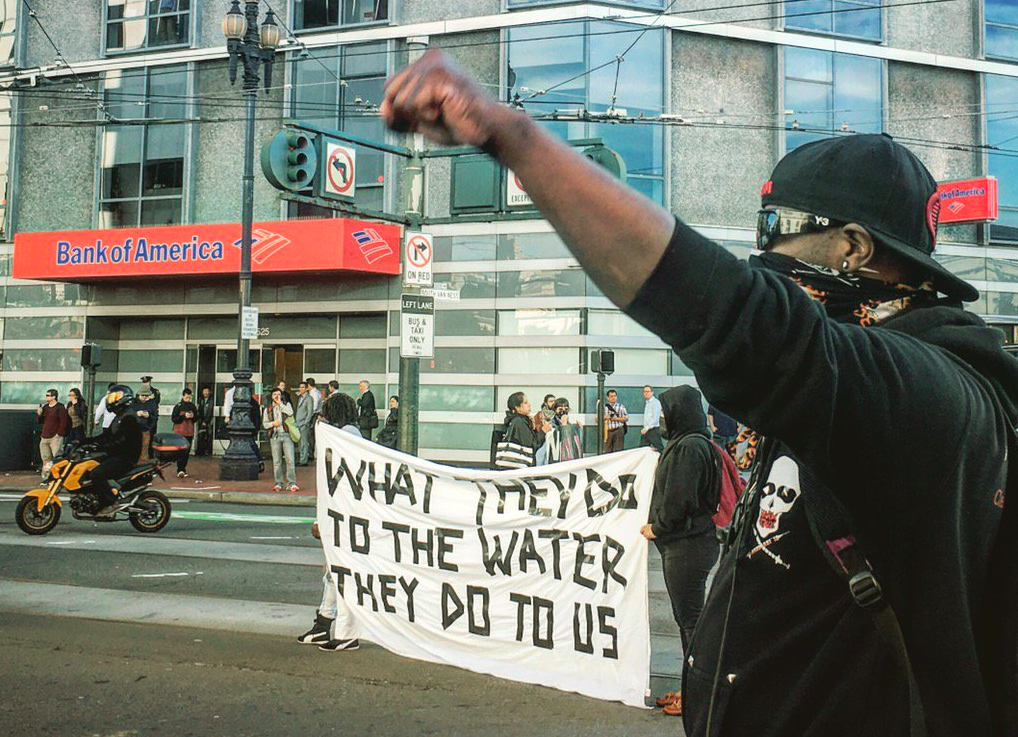
The Defund DAPL Coalition, which launched earlier this month, is made up of representatives from local groups that advocate for the rights of indigenous people and for the environment, including the Asian Pacific Environmental Network, Idle No More SF Bay, Fossil Free CA, 350 Bay Area, and Injustice Boycott.
Fielder said the coalition is taking it step by step, starting with raising awareness and attempting to find a legislative sponsor for the ordinance. The coalition will be presenting an open letter to the Board during today's meeting, with supporting signatories from indigenous, environmental and public health allies.
Though the Board is opposed enough to the DAPL's construction that it enacted a November 4th, 2016 resolution against it, Fielder said the Supervisors should recognize that if they don't take financial action, they are implicitly endorsing the pipeline.
"We are confident [the Supervisors] will come around and see this as an important, historical moment in terms of U.S. and indigenous relations," Fielder said.
So how much of San Francisco's money is invested with institutions that fund the DAPL?
According to Amanda Kahn Fried, policy and legislative manager for SF's Office of the Treasurer and Tax Collector, San Francisco currently has a depository of $8.3 billion in assets. Of that, $1.052 billion, or roughly 12.6 percent, is invested with institutions on the coalition's defund list.
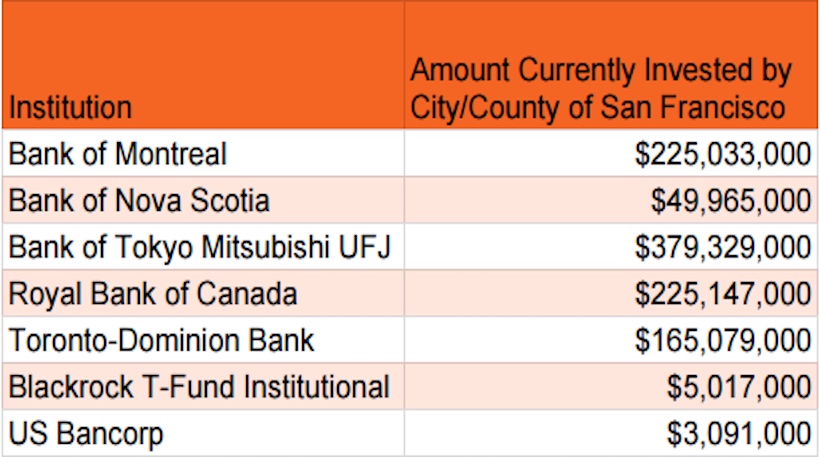
In addition to the institutions listed above, the coalition has called out the city for having contracts with Bank of America, another investor. But BofA is only "one of the city's vendors for commercial banking—it does not manage our investment accounts," Fried clarified.
State law requires the city's treasurer, Jose Cisneros, to make investments that preserve capital, meet the city's daily cash flow needs and provide a market rate of return, Fried said. Shortly after his election in 2005, Cisneros began considering socially responsible investment criteria when deciding about specific corporate securities and other institutions.
According to Fried, this socially-responsible screen "includes items like production of firearms, board diversity, predatory lending and global sanctions," against which the city's investments are reviewed each month.
Fried said that Cisneros "hears the strong outcry for divestment from institutions financing the Dakota Access Pipeline," and while his first priority is keeping the city's money safe, "he will consider adding financing of the Dakota Access Pipeline to the socially responsible investment matrix when we do the annual update in October."
But the Defund DAPL Coalition is hoping the Supervisors will take action sooner. In addition to today's board meeting, they plan to "continue to show up and rally until [the Supervisors] see the urgency of the situation," Fielder said.

